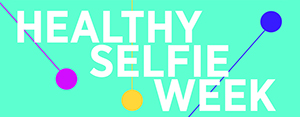Coping With Mental Health Challenges During National Pandemic
October 14, 2020 Rylenn Keys
The Wellness Hub's Healthy Selfie Week webinars to assist people with mental health, interpersonal relationships in a pandemic, and so much more can still be accessed.
According to the Centers for Disease Control and Prevention, as a result of the national pandemic, there can be a worsening of mental health conditions. Many people who are facing anxiety and depression could, under normal circumstances, seek counseling and support services. However, the pandemic presents a challenge due to social distancing guidelines that have been put in place to mitigate the disease. Moreover, those guidelines, though limiting the spread of infection, can also result in the increased prevalence of mental health conditions, substance use, domestic violence, and loneliness, according to an article in JAMA Internal Medicine.
Students have frequently been studied regarding the aspects of mental health. Specifically, a graduate student study reported that 41 percent of the students reported facing anxiety and 39 percent reported facing depression. These types of studies have continued in response to the pandemic. In a large cross-sectional study, approximately 44,000 students were assessed to determine the prevalence of depression and anxiety during a national pandemic. It was concluded that 7.7% suffered symptoms of anxiety and another 12.2% had symptoms of depression. It was also concluded in this study that the pandemic could increase the depression symptom risk.
The prevalence of mental health conditions is commonly noted in studies and articles. However, how to deal or cope with the effects of mental health conditions in a pandemic can sometimes be unclear. According to the JAMA Internal Medicine article, there are a few ways to address mental health while remaining socially distant: plan, surveil, and support. It is almost unavoidable to feel lonely while socially distancing but having check-ins with friends and family, participating in online social events and exercise classes, and engaging in an online workplace was mentioned as beneficial in reducing the feeling of loneliness. Additionally, with the increased possibility of substance use and domestic violence, it is important to have surveillance and an intervention plan in place to help those who need it most. Lastly, the support from the health care system to be able to provide mental health services virtually is crucial in addressing the unavoidable effects of loneliness, depression, and anxiety.
At UMB, we aim to ensure students have resources to address many of the complications and frustrations that may arise from daily life and living through a national pandemic.
The Wellness Hub, a department in the division of Campus Life Services, in partnership with the One Love Foundation, UMB’s POP! Educators, UMB’s National Alliance on Mental Illness, and the Student Counseling Center hosted a variety of events virtually via Zoom during Healthy Selfie Week, Oct. 5-11, to discuss ways to assist people with mental health, interpersonal relationships in a pandemic, and so much more. If you were unable to attend the events hosted this month, the webinars have been recorded. To access them, go to our On-Demand Webinars or visit https://www.umaryland.edu/wellness/health-initiatives/healthy-selfie-week/.
For more information on the Wellness Hub or future events, visit umaryland.edu/wellness.